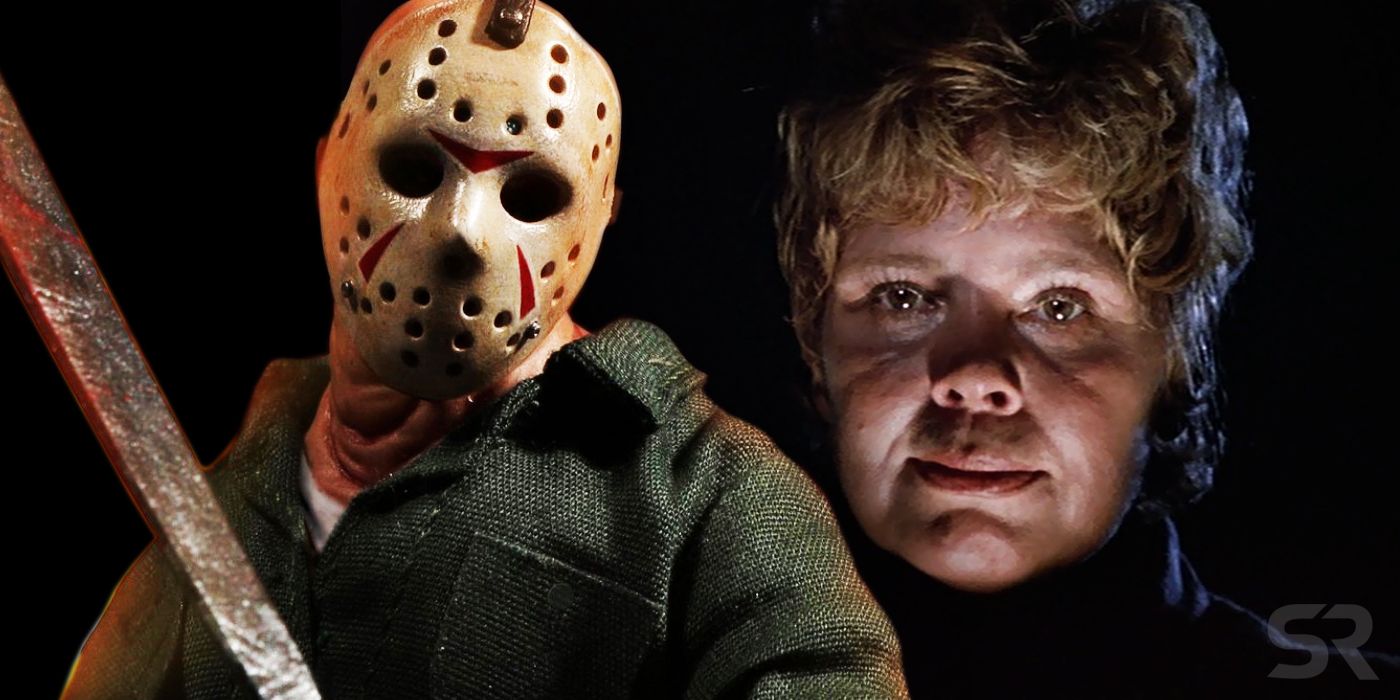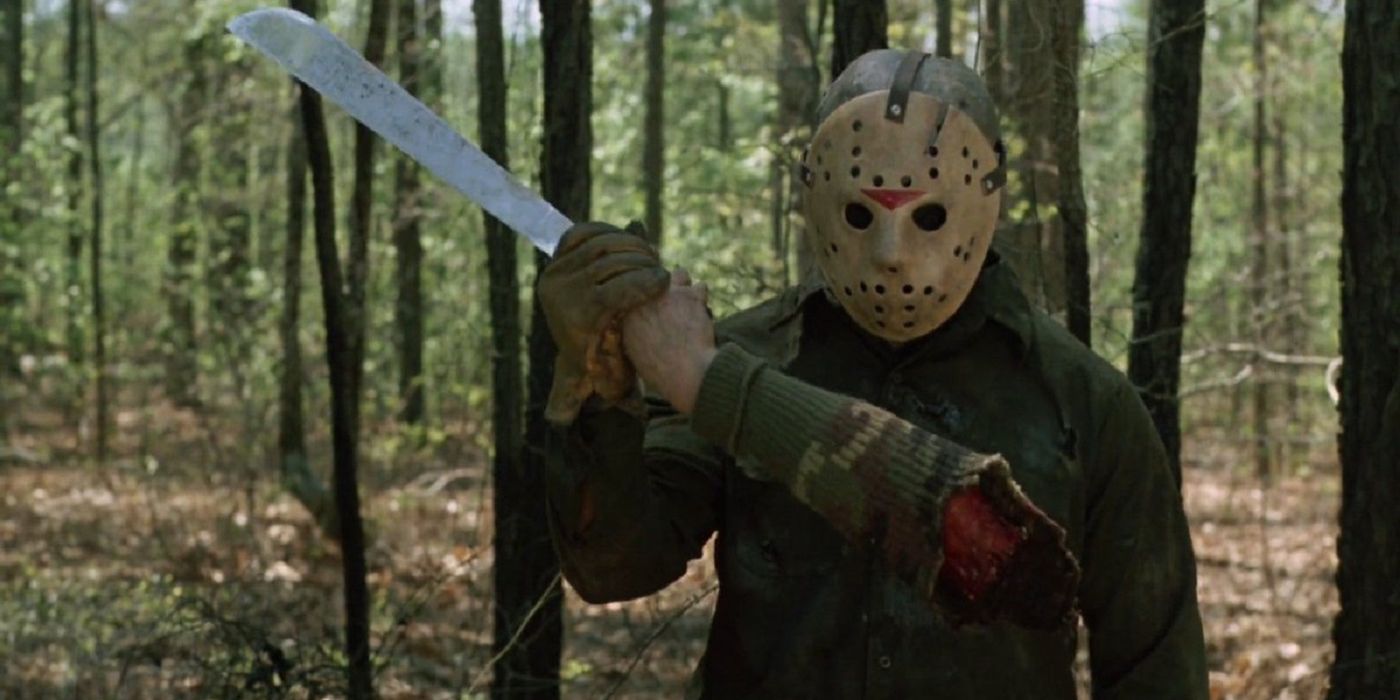Friday the 13th has one of the most recognizable scores in horror movie history. But what's the true meaning behind the iconic "cha, cha, cha"?
Scores play a key role in all films but some could argue that they serve an even extra purpose in horror movies. The music tends to add another element of terror, especially when used to coincide with an intense moment like the shower scene in Pyscho or the well-known piano medley used in the Halloween franchise that has become synonymous with Michael Myers' murder sprees.
The first Friday the 13th score was composed by Harry Manfredini. Like John Carpenter with Halloween, Manfredini wanted a simple, yet impactful, tune. He decided from the early stages to only use music when the killer was on-screen. In the case of 1980's Friday the 13th, the killer was Jason's mother, Mrs. Voorhees. Manfredini also purposefully cut out the music during tense scenes as a way to relax the audience before the killer would strike. The repetitive sound used for the Friday the 13th franchise is often identified as "cha, cha, cha" sound but that's not accurate.
The theme music created by Manfredini was actually "ki ki ki, ma ma ma". When Pamela Voorhees is revealed as the killer towards the end of the first movie, a message came through as she was losing her mind. She kept reciting to herself the words, "Kill her, mommy" as if it was a request from her deceased son. The "ki ki ki" sound came from the word "kill" while "ma ma ma" was used for the word "mommy". Manfredini recorded the sound in a rhythmic tone in a harsh manner. An echo was added to the sound to create the final product.
When Jason Voorhees took over as the killer in Friday the 13th Part 2 and beyond, Manfredini changed up the use of the specific tune. Rather than just used the music when Jason was present, he started to use a different approach. The music would play when something was about to happening, almost as a warning to viewers to stay vigilant. The tactic was similar to the approach used in the Jaws franchise. It was also used to fool audiences by playing the music as red herrings.
As the franchise went on, the score evolved in some ways to keep viewers on the edge of their seats. Even after Manfredini left the franchise for a time ahead of Friday the 13th Part VII: The New Blood, his score was still used. When the 2009 remake for Friday the 13th was in development, producers Andrew Form and Brad Fuller quickly acquired the rights to Manfredini's score so they could create something similar. They were very aware that the nostalgia of the theme music was important to audiences.


